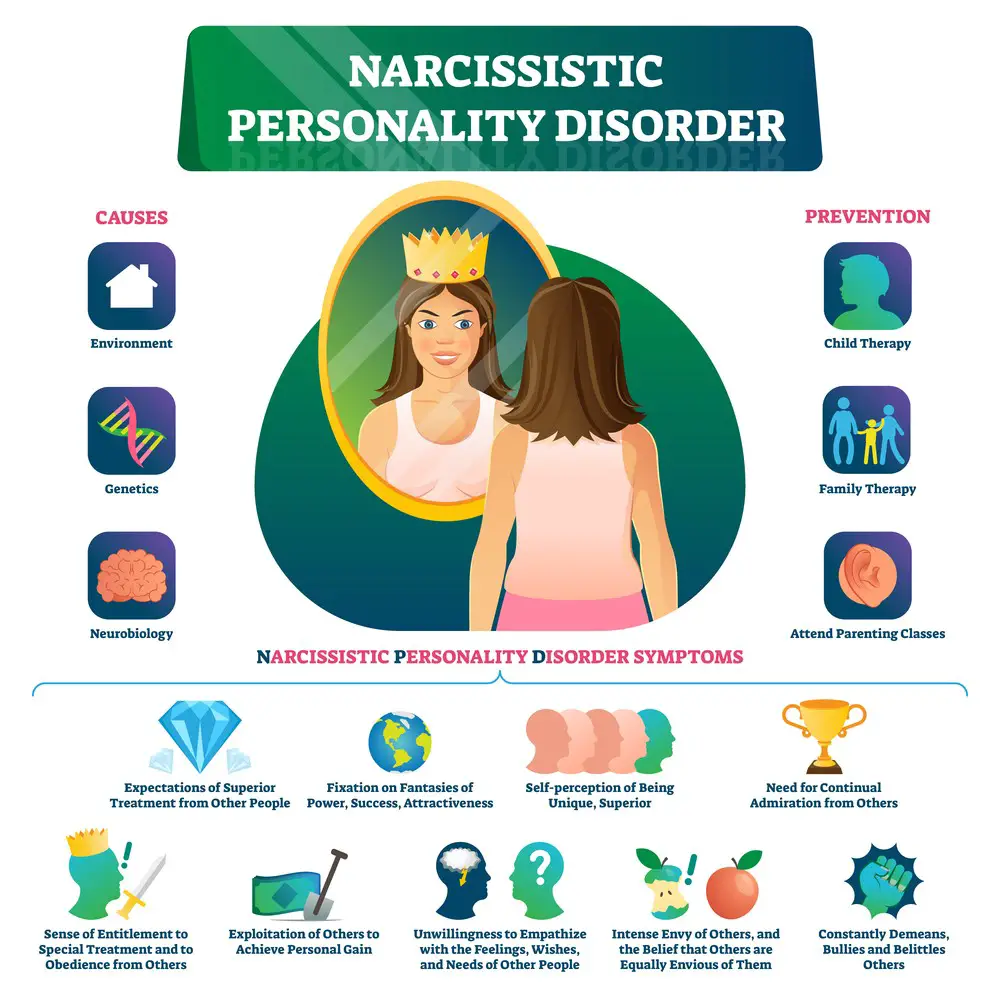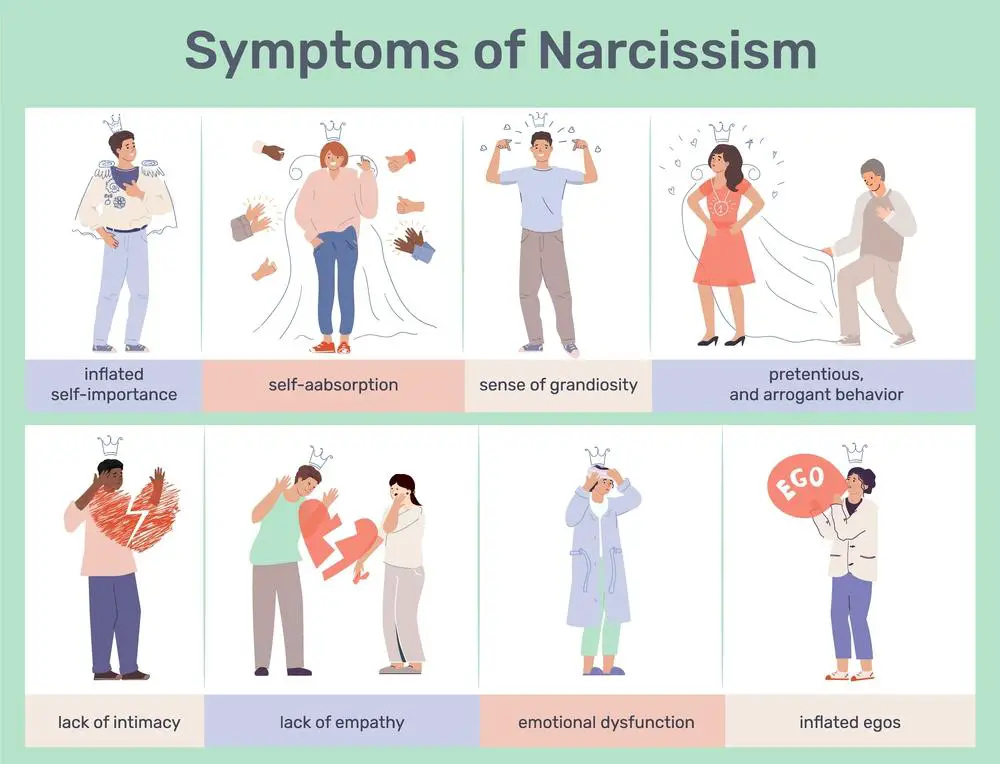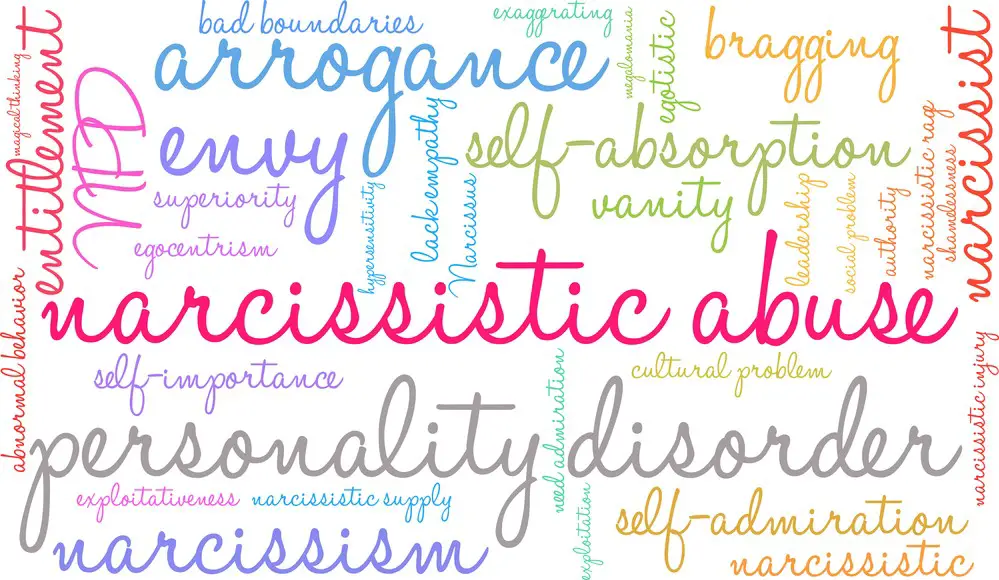The term “altruistic narcissist” may seem like an oxymoron at first glance, considering that narcissism is typically associated with self-centeredness and a lack of concern for others. However, it is possible to observe behaviors that superficially appear altruistic but are driven by underlying narcissistic motivations. A deeper look reveals that altruistic narcissist often engages in generous actions to satisfy their own need for attention, affirmation, and admiration from others.
Understanding the concept of an altruistic narcissist involves recognizing the complex interplay between seemingly selfless deeds and the narcissist’s ego. These individuals may go to great lengths to help others. Still, their acts often serve a dual purpose: benefiting the recipient on the surface while subtly fulfilling the narcissist’s desire for praise and validation. Discerning the motives behind their altruistic behavior is essential for grasping the complete picture of this personality type.
In your relationships, both personal and professional, it might be challenging to manage interactions with an altruistic narcissist because their intentions can be masked by their seemingly kind actions. Awareness and insight can be vital in navigating these dynamics, ensuring that you protect your well-being while understanding the complexities involved in such relationships.
Key Takeaways
- Altruistic narcissists perform kind deeds with underlying self-centered motives.
- Identifying their true intentions requires looking beyond the surface of their actions.
- Effective management of relationships with altruistic narcissists is grounded in awareness and personal boundaries.
 Understanding Altruistic Narcissism
Understanding Altruistic Narcissism
When you hear “narcissism”, you might think of self-centeredness and egoism, but there’s a complex variant you should know about altruistic narcissism. It’s a blend of self-focus with selfless actions.
Defining Altruistic Narcissism
An altruistic narcissist is someone who appears generous and caring on the surface but whose actions are often driven by a deep need for recognition and admiration. Unlike the traditional view of narcissistic personality disorder, which centers on overt self-promotion and grandiosity, the altruistic kind operates under the guise of kindness.
- Grandiose Narcissism: Characterized by boldness, arrogance, and an overt demand for admiration.
- Communal Narcissism: Involves individuals who seek admiration through perceived altruism and community involvement.
Key Takeaway: Altruistic narcissists combine acts of kindness with underlying selfish motives cloaked by a facade of generosity.
Typologies: Overt and Covert Narcissism
In understanding narcissism, it’s helpful to distinguish between two key typologies: overt and covert.
- Overt Narcissism: You’ll find these individuals are upfront about their self-regard. They have an undeniable air of self-importance and openly seek the spotlight.
- Covert Narcissism (Vulnerable Narcissism): Here, narcissistic traits are less noticeable. These individuals may seem sensitive and withdrawn but harbor entitlement and resentment for not being recognized.
Overt narcissists may lean towards grandiose narcissism, while covert narcissists often exhibit traits of vulnerable narcissism, including sensitivity to criticism and a tendency to play the victim. Altruistic actions by a narcissist, whether overt or covert, can mask their deeper needs for admiration and validation.
Key Takeaway: Whether overtly grandiose or covertly vulnerable, narcissists adopt different strategies to fulfill their need for admiration, with altruistic actions serving as a potential facade.
 Psychological Underpinnings
Psychological Underpinnings
Before diving into the characteristics of the altruistic narcissist, it’s crucial to understand the psychological framework that underlies their behavior. Your comprehension of their self-esteem and shame dynamics, along with their anxiety and control mechanisms, will illuminate why they act the way they do.
Self-Esteem and Shame Dynamics
When it comes to self-esteem, altruistic narcissists often possess a paradoxical mix. They may exhibit high confidence in public, yet deeply rooted insecurities plague them. Here’s a quick look at these intricate dynamics:
- Confidence in Public: They often appear self-assured, seeking admiration for their generous deeds.
- Underlying Insecurities: Beneath the surface, they fear being unworthy or inadequate.
Shame comes into play when their self-view is threatened. They’re sensitive to how others perceive them, deeply fearing negative judgments. To cope with this, they might:
- Engage in Generous Acts: To reinforce a positive self-image and stave off shame.
- Use Manipulation: Sometimes, their kindness manipulates others’ perceptions to maintain their self-esteem.
Key Takeaway: Your recognition that their charitable behavior often masks fragile self-esteem can shed light on the complexities of altruistic narcissism.
 Anxiety and Control Mechanisms
Anxiety and Control Mechanisms
Altruistic narcissists handle anxiety and maintain control in distinctive ways. Their internal narrative drives them to control situations to avoid feelings of vulnerability. Here’s how anxiety and control interplay:
- Anxiety Mitigation: They use altruistic behavior to soothe internal anxiety about self-worth.
- Dominance Over Environment: Their acts of kindness can be tools for maintaining control over social dynamics.
They might employ manipulation subtly as a strategy to stay in charge:
- Controlling Perception: Manipulative tactics are often cloaked in benevolence, steering how others regard them.
By understanding these anxiety and control mechanisms, you’re better equipped to see beyond the surface of their actions.
Key takeaway: Recognize that an altruistic narcissist’s compulsion to help is frequently intertwined with a need to quell anxiety and command control over their relationships and environment.
 Behavioral Manifestations
Behavioral Manifestations
In unpacking the behavioral patterns of altruistic narcissists, you’ll find a mix of seemingly selfless acts coated with an undercurrent of personal gain. Let’s cut through the veneer and explore their actions.
Signs of an Altruistic Narcissist
- Generosity: You might notice frequent grand gestures of kindness, often done publicly. While these good deeds are commendable, altruistic narcissists typically have an ulterior motive: to bolster their own ego and receive praise.
- Recognition Seeking: Even when they help others, they intensely desire acknowledgment. It’s common for them to highlight their contributions, seeking admiration and validation for their charitable behavior.
Key Takeaway: If someone’s generosity feels more about them than those being helped, you might be dealing with an altruistic narcissist.
 Patterns of Manipulation and Control
Patterns of Manipulation and Control
- Conditional Kindness: Their kindness often comes with strings attached. They may use their benevolence to manipulate situations or people, expecting something in return, even if it’s just loyalty or a boost to their reputation.
- Control Through Generosity: They utilize their apparent selflessness to exert control over others. By creating a sense of debt through their helpful actions, altruistic narcissists can influence and dominate others’ choices and feelings.
Key Takeaway: Stay aware that when a pattern of kindness is combined with expectations of submission or special treatment in return, this could be a manipulation tactic.
Social and Relational Impact
Navigating the social and relational intricacies of altruistic narcissists is key to understanding their impact on others. These individuals blend their self-centric behavior with acts of kindness, creating unique dynamics in their interpersonal relationships.
Altruistic Narcissists in Relationships
When you’re in a relationship with an altruistic narcissist, it’s like riding a roller coaster of emotions. At first, their charm can sweep you off your feet. They often use their allure to create a strong connection, making you feel special and valued.
- They may shower you with gifts and attention.
- Their actions often seem generous but might serve their interests.
However, the generosity might not be as selfless as it appears. Over time, the manipulation can start to surface. They may use their previous acts of kindness as leverage, subtly reminding you of the times they were there for you, thus creating an imbalance of trust in the relationship.
Key Takeaway: In relationships, altruistic narcissists can initially seem very giving, but their kindness often has strings attached, affecting the balance of give-and-take and trust between partners.
Friendship Dynamics
Friendships with altruistic narcissists can be equally complex. They might be the friend who’s always there with a helping hand or organizes charitable events, attracting admiration and social accolades.
- Friends may be initially drawn to their generosity and initiative.
- Social circles might hold them in high regard due to their good deeds.
The line between genuine care and self-serving behavior is frequently blurred in these friendships. An altruistic narcissist may help you move into a new apartment, but it might not be long before they subtly remind you of how much they’ve done for you when they need a favor in return. This quid-pro-quo scenario can lead to friendships based on imbalance rather than mutual support and trust.
Key Takeaway: Friendships with altruistic narcissists often have layers of expectation beneath the surface, which can strain connections and create a sense of obligation rather than genuine camaraderie.
Altruistic Acts or Hidden Agendas
When you see someone helping others, it’s essential to understand the motivation behind their actions, especially if they have a pattern of seeking the spotlight.
Understanding Ulterior Motives
When you peel back the layers of altruistic acts, it’s possible to find ulterior motives, such as a deep-seated need for praise or recognition. For instance, a person might volunteer solely to enhance their social standing or gain favors. Here are some tell-tale signs to look for:
- Frequency of public announcements: Notice how often the person shares their good deeds.
- Context of the acts: Pay attention to whether their help is offered publicly or privately.
Key takeaway: Always observe the context and frequency of publicized good deeds.
Altruism or Manipulation?
Sometimes, what appears to be genuine altruism might subtly be a form of manipulation. People may use their generosity to influence others or to benefit themselves indirectly. Here are some aspects to consider:
- Response to lack of acknowledgment: Notice if there’s frustration when their acts go unnoticed.
- Expectations set: Watch for any signs of expecting favors or concessions in return for their help.
Key takeaway: It’s essential to discern whether help comes with strings attached, indicating a move towards manipulation rather than pure altruism.
Consequences of Altruistic Narcissism
When altruistic narcissism becomes prominent in behavior, this can lead to significant interpersonal challenges and distinct impacts on both personal well-being and the wider community.
Impact on Well-being
- Physical Health: You might find your well-being compromised as the stress of upholding a narcissistic altruism facade can manifest in physical ailments, such as chronic headaches or sleep disturbances.
- Emotional Health: There’s also a toll on your mental health, where guilt or anxiety can be constant companions due to the fear of not meeting your moral standards or the expectations of others.
Key Takeaway: Your overall well-being may be at risk if altruistic narcissism leads you to neglect your needs in pursuit of approval.
Effects on the Community
- Relationship Strain: Intense altruistic actions driven by narcissism can strain relationships, as friends and family may feel manipulated or used.
- Moral Dilemmas: The community could suffer when the line between helping for the sake of others and self-serving behavior blurs, creating ethical confusion.
- Potential Harm: If altruistic acts are performed mainly for self-image, there can be harmful consequences when the support doesn’t align with the actual needs of those being ‘helped’.
Key Takeaway: The impact of altruistic narcissism on the community can be profound, potentially leading to harm and moral ambiguity.
 Narcissism in the Professional Realm
Narcissism in the Professional Realm
When you encounter narcissism in your professional life, it can play out in various, nuanced ways, impacting not only interpersonal relationships but also leadership and workplace culture. Your awareness of these dynamics can be invaluable.
Workplace Dynamics
Narcissistic individuals in your workplace may display a strong sense of entitlement and a competitive streak that affects team cohesion. Here’s how you can spot these traits:
- Entitlement: You might notice certain colleagues insisting on special treatment or unconsciously assuming they deserve the best assignments.
- Competitiveness: They often thrive on rivalry, which can disrupt team harmony. Regardless of the impact, you could see them flexing their achievements or pushing to outperform others.
Their behavior can sometimes drive positive outcomes, pushing you and your team toward more significant achievements. However, be mindful of the potential for a toxic environment if competition overrides collaboration.
Key takeaway: Be mindful of how entitlement and competitiveness can shape your work experience.
Leadership and Authority
Narcissism can manifest distinctly in those with authority. Leaders with narcissistic traits might be charming and compelling visionaries, which can be both an asset and a challenge. Let’s break this down:
- Vision: Their charisma can inspire you and others to reach for ambitious goals.
- Authority misuse: Watch for instances where leaders might use their power to belittle or manipulate.
Such leaders can create a cult of personality where their ideas reign supreme. Your ability to navigate this space with grace and assertiveness can safeguard your professional growth.
Key takeaway: Leadership narcissism requires a delicate balance between being inspired by their vision and staying aware of the potential misuse of authority.
 Managing Relationships with Altruistic Narcissists
Managing Relationships with Altruistic Narcissists
Building a healthy relationship with an altruistic narcissist requires clear strategies. Understanding how to establish trust and effective communication can help manage these dynamics.
Setting Boundaries
You’ll want to be clear about your limits. Here’s how:
- Identify Your Needs: Recognize what you’re comfortable with and what’s a no-go.
- Express Boundaries Clearly: Use “I” statements to convey your limits respectfully. For example, say, “I feel overwhelmed when…”
Key takeaway: Boundaries are essential for a balanced relationship.
Communication Strategies
Effective dialogue with an altruistic narcissist involves:
- Active Listening: Try to hear what they’re saying without immediately reacting.
- Direct and Honest: Keep your messages simple and truthful, avoiding ambiguity.
Key takeaway: Good communication helps foster understanding and trust.
Healing and Growth
Embarking on the journey of healing and growth as an altruistic narcissist, you’ll discover the importance of nurturing personal development and seeking professional support. These steps are vital in fostering emotional intelligence and forgiveness, ultimately leading to a fulfilling change.
Personal Development
Personal development is key to your growth. Tap into these strategies to kickstart your transformation:
- Emotional Intelligence: Enhance your self-awareness by reflecting on your emotions and responses. Keep a journal to track patterns and triggers.
- Forgiveness: Cultivate a practice of forgiveness, starting with yourself. Understand that everyone has imperfections, and learning from mistakes paves the way for personal growth.
Key Takeaway: Commit to self-improvement daily. It’s a step-by-step process that enriches your emotional savvy and opens the door to true change.
 Seeking Professional Support
Seeking Professional Support
Professional support can guide you safely through the complexities of self-growth. Here’s how to make the most of it:
- Find the Right Therapist: Research therapists who specialize in narcissistic behavior. Having a good fit makes a huge difference.
- Engage in Therapy: Commit to regular therapy sessions and do the homework assigned to you. Therapy is a safe space to explore feelings and behaviors.
Key Takeaway: Don’t shy away from asking for help. Professional guidance is a strong ally in your journey toward becoming a better you.
Legal and Ethical Considerations
When exploring the concept of altruistic narcissism, it’s crucial to understand the legal frameworks and ethical implications. Your comprehension of these elements can have significant consequences.
Rules and Regulations
The intertwining of rules and regulations with altruistic narcissism can be quite complex. You’ll find that while no direct laws might address altruistic narcissism head-on, certain behaviors linked to it could fall under legal scrutiny.
- Rules: Be aware that some actions, although seemingly for the greater good, may still breach specific workplace or societal rules.
- Legal Consequences: Even if framed as altruistic, acts involving deception or manipulation could potentially lead to legal trouble.
Key Takeaway: Cross-check your actions with relevant rules to avoid unintended legal repercussions.
Ethical Dilemmas
Dealing with ethical dilemmas in the context of altruistic narcissism requires nuance and care.
- Violence: Any forms of coercion or aggression, physical or psychological, are ethically unacceptable. If altruistic goals are pursued using such means, it raises a serious ethical question.
- Punishment: Consider whether holding someone accountable for actions born out of a distorted sense of altruism is ethically defensible.
Key Takeaway: It’s vital to weigh the moral aspects of altruistic acts, especially when they affect others or if altruism is a guise for self-serving interests.
Further Research and Studies
In advancing our understanding of the altruistic narcissist, further research is paramount. You’ll discover pioneering studies casting new light on this personality type, offering insights and deepening our awareness of how these individuals navigate social dynamics.
University Research
Current Initiatives:
- Researchers at top-tier universities are exploring the altruistic behavior among narcissistic individuals.
- Studies focus on environmental and social factors that foster such traits.
Active Projects:
- Interdisciplinary Analysis: Connecting departments such as Psychology, Sociology, and Ethics to paint a composite picture.
- Longitudinal Studies: Tracking individual differences over time to assess stability and change in altruistic narcissism.
Key Takeaway: University-led research provides a vital knowledge base, contributing to our understanding of complex personality dynamics within diverse populations.
Personality Trait Investigations
Research Focus:
- Attention to how individual differences influence the expression of narcissism and altruism.
- Emphasis on identifying key markers that predict altruistic behavior in narcissists.
Investigative Methods:
- Quantitative Assessments: Standardized testing to measure personality traits.
- Qualitative Interviews: In-depth conversations with subjects to glean nuances in behavior and motivation.
Key Takeaway: By dissecting personality traits, investigators can shed light on the nuances of altruistic narcissism, guiding future intervention strategies and theoretical models.
Meet Jacob Maslow: Triumphing Over Narcissism and Embracing Mental Wellness
My journey through the complexities of mental health and dealing with a narcissistic ex-partner has been a challenging yet enlightening one. As a therapy veteran and someone who manages my mental health with Lexapro, I’ve recently embraced the support of BetterHelp to further my healing.
My personal experience with my ex-partner, who suffers from severe narcissism, has profoundly impacted my life. Her refusal to cooperate with court-ordered shared custody and reunification therapy, especially after our children just began to overcome alienation, has been a significant struggle. Her behavior escalated as she pursued affairs with community leaders, followed by smear campaigns—a pattern typical of narcissistic behavior.
As she aged, I observed an intensification of her narcissistic traits, coinciding with changes in her physical appearance. This transformation has led to a complete alienation from our kids in the past year, as she continually defies any custody orders and agreements.
Before this, we maintained a close relationship, living in two households for years after our separation. The sudden shift to being cut off from my children about nine months ago has been a profound challenge for my mental health.
I find solace in taking long walks daily, which helps me clear my mind and cope with the ongoing court battles and her consistent disregard for court orders.
Through writing articles about mental health and narcissism, I aim to support those dealing with similar challenges with narcissistic partners. I firmly believe that anyone can overcome their mental health issues with the proper support and understanding. Additionally, I run a legal site dedicated to helping others facing non-compliance from spouses in court matters and the weaponization of children instead of cooperative parenting.
My story is one of resilience and continuous learning. I share my experiences and insights to help others navigate the turbulent waters of dealing with narcissism and maintaining mental health.

- Stress Solutions: The Role of Therapy in Mental Health Recovery - March 1, 2024
- How to Calm Anxiety Attack: Effective Techniques for Instant Relief - March 1, 2024
- How to Transform Your Life in 6 Simple Steps - February 29, 2024
This site contains affiliate links to products. We will receive a commission for purchases made through these links.


 Understanding Altruistic Narcissism
Understanding Altruistic Narcissism Psychological Underpinnings
Psychological Underpinnings Anxiety and Control Mechanisms
Anxiety and Control Mechanisms Behavioral Manifestations
Behavioral Manifestations Patterns of Manipulation and Control
Patterns of Manipulation and Control Narcissism in the Professional Realm
Narcissism in the Professional Realm Managing Relationships with Altruistic Narcissists
Managing Relationships with Altruistic Narcissists Seeking Professional Support
Seeking Professional Support
